Beyond Inklings Imitations 2: Stories We May Have Missed
Most of us are familiar with Narnia author C. S. Lewis and The Lord of the Rings creator J. R. R. Tolkien. We may also enjoy the fiction of newer Christian speculative authors. But what of those we might have missed?
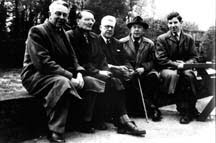 One of the greatest pleasures I have as a reader of the speculative genre is discovering wonderful books I didn’t even know about until somebody waved it under my nose and told me, “Here. Read. Love.” This feature is my brief effort to pass that joy along.
One of the greatest pleasures I have as a reader of the speculative genre is discovering wonderful books I didn’t even know about until somebody waved it under my nose and told me, “Here. Read. Love.” This feature is my brief effort to pass that joy along.
In part 1, we explored how readers often want “more like the Inklings” without knowing what the Inklings themselves wanted to imitate. Yet this installment brings another issue: that in our desire to read the works of whoever seems to be “the next Lewis” or “in the tradition of Tolkien,” we may miss some truly great tales, from classic and newer authors.
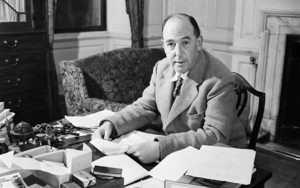
C. S. Lewis
With that in mind, here are some great speculative authors and novels you might not know about.
C. S. Lewis
First, why is he here? Well, have you read Till We Have Faces? No? Go thou and sin no more.
George MacDonald
 Thanks to Lewis, this name is better known now than it was even 30 years ago, but many people have still heard the name without ever picking up one of his books. This is a tragedy, because MacDonald’s works are some of the best mind-bending and world-stretching stories of the Christian fantasists. At the Back of the North Wind is possibly his best, and the duet The Princess and the Goblin and The Princess and Curdie are fine works as well. You can also find good collections of his shorter novellas and stories around Amazon.
Thanks to Lewis, this name is better known now than it was even 30 years ago, but many people have still heard the name without ever picking up one of his books. This is a tragedy, because MacDonald’s works are some of the best mind-bending and world-stretching stories of the Christian fantasists. At the Back of the North Wind is possibly his best, and the duet The Princess and the Goblin and The Princess and Curdie are fine works as well. You can also find good collections of his shorter novellas and stories around Amazon.
James Blaylock
An evangelical of sorts (he doesn’t go to church often), Blaylock has a marvelous collection of novels, full of rich writing, allusion/symbolism. Some of them may not match the stereotypical Christian “clean” standard, but they are still worth reading. If you want to ease into the “tougher” ones, Blaylock has two that would be the equivalent of YA fiction: The Land of Dreams and The Last Coin.

Charles Williams
Charles Williams
The lesser-known “third arm” of the Inkling writers, Williams is stranger than either Lewis or Tolkien, but his work is very rich and rewarding for readers. Read his work and then pick up a good reader’s guide; I highly recommend Thomas Howard’s The Novels of Charles Williams for a Christian assessment and evaluation.
Tim Powers
 Powers is an Eastern Orthodox believer (I believe), but certainly a Christian. His best-known novel at this point is On Stranger Tides, the novel from which the most recent Pirates of the Caribbean film was inspired. His work is fairly tough by evangelical standards, but immensely rewarding and filled with biblical allusion and symbolism. A good entry point might be Dinner at Deviant’s Palace or the aforementioned On Stranger Tides.
Powers is an Eastern Orthodox believer (I believe), but certainly a Christian. His best-known novel at this point is On Stranger Tides, the novel from which the most recent Pirates of the Caribbean film was inspired. His work is fairly tough by evangelical standards, but immensely rewarding and filled with biblical allusion and symbolism. A good entry point might be Dinner at Deviant’s Palace or the aforementioned On Stranger Tides.
Wade Wellman
His works are explicitly Christian, many of them following the adventures of Silver John through the Appalachian mountains, banishing witchcraft and sorcery wherever he finds it, using a Christian “white magic” of his own. The stories of John are to be found in the collection John the Baladeer. Be sure to check out these other novels of his: The Old Gods Waken, After Dark, The Lost and the Lurking, The Hanging Stones, and The Voice of the Mountain. Do note that they are written in an Appalachian dialect, though this is not nearly as obtrusive as, say, the dialect in Huckleberry Finn.
Randell Garrett
Garrett was a longtime SF writer who converted to Christianity. His best works are in the Lord Darcy series, which follows a fantastical/alternate world Sherlock Holmes and Father Brown-esque character. The stories are collected in Lord Darcy.
Cordwainer Smith
This was the pseudonym for the American spy Paul M. A. Linebarger, writing in the 1950s and ‘60s, who represents one of the earliest Christians writing in the speculative genre. His works are considered a classic in the genre of science fiction, and his stories are strange and profound all at once, though heavily literary. His complete short fiction is available in The Rediscovery of Man, and his only novel is titled Nostrilia.
Gene Wolfe
Wolfe is a devoted Christian whose books are some of the few speculative works respected by the wider literary establishment as being well-written literature. His work is excellent, and The Devil in a Forest is a good place to start.
Lloyd Alexander
I know little about Alexander’s beliefs beyond the fact that he was (so far as I can determine) a Christian. He has several series for YA audiences, and his greatest, crowning achievement is The Chronicles of Prydain, a five-volume fantasy series based upon Welsh and Celtic mythology. The books were published around the same time as Lewis and Tolkien, and participates in the same “vein” of fantasy as both of them. They were my favorite books growing up, and it is really a pity they are not better known.
Susan Cooper
Cooper is not, I believe, a Christian, but her work is among the best modern fantasy around, and is certainly still compatible with a Christian worldview. Her The Dark is Rising set is five books, all published around the same time as Lloyd Alexander, a few years after The Lord of the Rings and Narnia. A good one-volume set is available for less than $10 on Amazon.

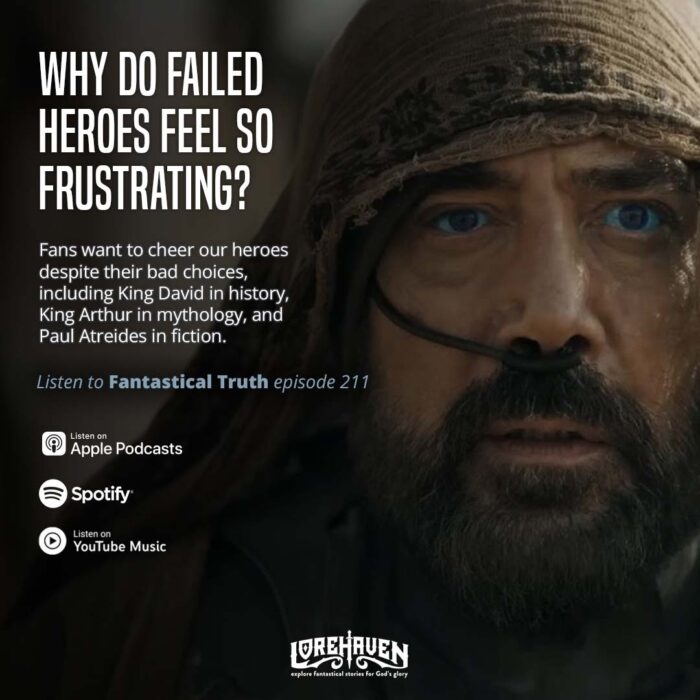

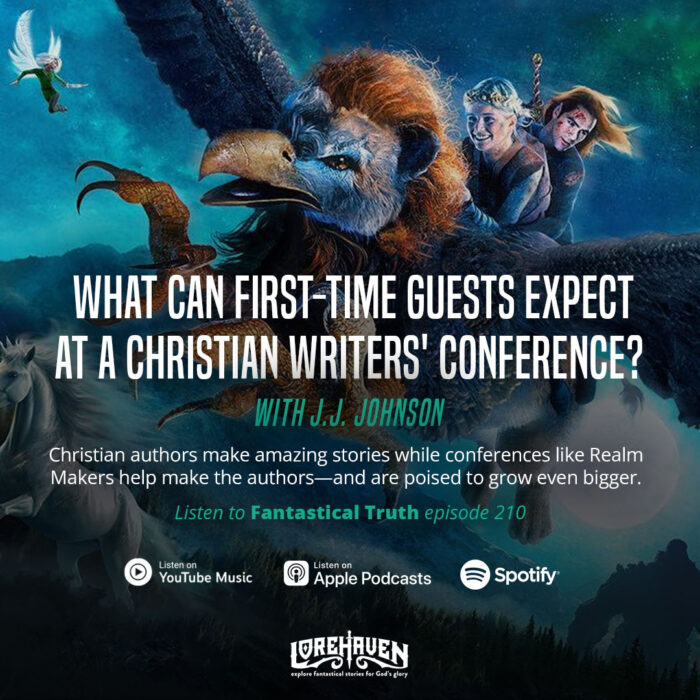






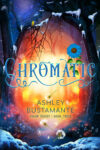



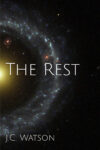


















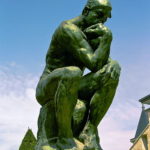
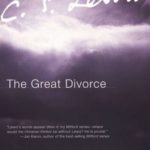
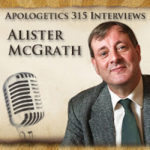
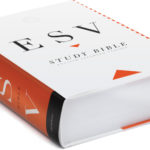



I LOVE “Till We Have Faces” and “The Prydain Chronicles”! I have read some George MacDonald but I find his work disturbing for some reason…I couldn’t put my finger on why. Too surreal for my taste? *shrug* Most of these others I had never heard of before…
My favorite MacDonald is “The Light Princess,” one of his short stories. I like The Princess and the Goblin, but the ending of The Princess and Curdie was downright bizarre. I haven’t read Phantastes for about thirty years, but I reread Lilith not long ago and was struck both by its brilliance and by the freakiness of his Universalist beliefs.
Hannah Hurnard is another brilliant author who drifted into heretical beliefs in her later years. So sad! I haven’t been able to enjoy Hinds’ Feet on HIgh Places since I read Eagles Wings to Higher Places.
Bethany, glad to have found a fellow Til We Have Faces fan! Given it’s strangeness I am curious as to why MacDonald’s strangeness isn’t equally attractive? The Prydain Chronicles was foundational to my love of fantasy growing up, even moreso than Lewis or Tolkien (heretical, I know . . . .)
Susan Cooper’s books are wonderful! I would agree they are not very “Christian,” but have a wonderful good vs. evil flavor to them. I wish that they were more well-known.
Lacee, you wouldn’t happen to know what Cooper’s religious beliefs are you? I did some snooping around online but couldn’t find anything. If I had to guess, she’s either a Christian or a “lapsed” Christian from a high-church/liturgical church background she can’t quite shake. Since she’s British, I would guess Anglican.
How about Brian Jaques’ Redwall series? He was a Catholic but his books are wonderful! I can’t say much for symbolism and theology because he wasn’t that kind of a writer but they are a fine alternative to most animal fantasy(Cough, Warriors,Cough cough) excepting of course The Wind in the Willows.
T.K., Redwall! I knew I would forget something . . . Yes, they are great. I only read the first seven or eight, but they were extremely enjoyable. Not even sure why I stopped, actually.
Well, get back to it man! You’re missing out on real treats! I discovered Prydian pretty late, mostly because of the Black Cauldron movie that was off-limits in our house. I assumed in my trust of my parents that anything having to do with the Black Cauldron was bad so I stayed clear until late in high school, but they really are wonderful! Some of Mr. Alexander’s later books not so much (style slippage is all). I also enjoyed Till we have Faces finding it very interesting. I have always wanted to read the Adventures of Tom Bombadill but its like pulling hen’s teeth to find believe it or not!
I recently read The Knight by George MacDonald. I’m a little embarrassed to say that I didn’t completely love it as much as I probably should, given the massive props I’ve read about Gene Wolfe being “the best writer in the English language” and such. I do like Wolfe’s mythic construction; the premise for the world of The Knight is very unique. But I feel like the book is smarter than me, even though it is perfectly readable. The narrative construction seems to detract from the full believability of the sub-creation, in my opinion.
The Knight closely resembles Phantastes by George MacDonald. I also read one of MacDonald’s short stories in junior high.
Bainespal, I’m assuming you meant to say that Gene Wolfe wrote The Knight. Wolfe is (like all the writer Wolfes – and they are a clan and a half) a deep author. There’s more in his books than I get on the first few passes. But that ought to be a challenge, not an off-limits sign. I always try to find work just a bit out of my reach and comprehension; it pushes me into further depths, forces me to figure stuff out. I’m unaware of a good literary guide to Wolfe’s works, however, more’s the pity.
Updating: I just found a few lexicons and guides to Gene Wolf’s work, like this one. Be sure to check out the other related books too.
Though I’m a Lewis fan, only recently have I read Till We Have Faces, and I enjoyed it just as much as all my TWHF friends were certain I would.
The others, I must admit, I haven’t read, though my in-laws are huge Redwall fans.
I list (as often as asked) Til We Have Faces as one of my favorites. I also love Lloyd Alexander’s Chronicles of Prydain. When I did a little research to see if I could include him as a Christian fantasy author, I found no information about his religious beliefs. The stories themselves seem to tell the tale of the Conquering King, but I could find no information to bolster the idea that Mr. Alexander equated his character with Jesus Christ. Maybe. But I couldn’t verify it.
Is Stephen Lawhead too contemporary, or does he count?
Becky
Well, the other day I was going through the Library and noticed that if one goes all the way back — to the first book listed there, The Hobbit — the only authors listed as writing Christian fantasy are J. R. R. Tolkien, C. S. Lewis, Madeleine L’Engle, and then Stephen Lawhead. So if one seeks an even four groundbreakers, that’s who they are.
I don’t know much about him. But the criteria for “Christian novel” isn’t that the author thought his characters were Christ figures – at least, that’s not the criteria I’m using. They are certainly compatible thematically, anyway.
I figured that most anybody reading this website would be aware of Lawhead. His Song of Albion trilogy was the most impactful of his on me, and I would recommend them wholeheartedly. The Skin Map set not so much.
I could not understand Phantastes or Lilith until one day when I was looking through a book about symbols and read that the horse can represent man’s desire or ways. I suddenly realised that the books did not follow usual plot arcs because they were sermons!
I just finished Lillith. It was possibly the most bizarre book I have ever read. I am certain that there is rich symbolism throughout. But the main character was in love with a 15 year old, small person or not, did not sit well with this 21st century reader.
If there is commentary on the book, it might be helpful. I’m going to look for the Princess and the Curdie as I’ve heard that it is very good.
To understand Lilith, I think you need to get Christian Universalism. George MacDonald was a universalist, who believe that Christ’s sacrifice saved EVERYONE, regardless of personal assent:
http://en.wikipedia.org/wiki/Christian_Universalism
Lilith is an illustration of this. It’s all about how the only answer to sin is to die to live-to obey what we are told and then take up our place on the cold bowers under a healing moon. The more the protagonist struggles against it, the more he just hurts himself, and Lilith herself is a profound example of it-even in the end the first human rebel falls to grace. Lilith is my favorite book out of his works, but I tend to the weird anyways.
I’d also include Roger Elwood, mostly known for his Sf anthologies in the 70s, but Christian SF, F, and horror writer of books like Angelwalk, Dwellers, and others. He’s an uneasy hybrid of faith and some pretty dark themes.
Also, Walter Miller and A Canticle for Leibowitz has to be read, as well as James Blish’s novels. A VERY good fantasy series which is sadly out of print is Calvin Miller’s “Guardians of the Singreale”- it’s an incredible pair of books which upturn every single Christian spec-fic trope out there. His Singer trilogy of poetry is good too.
Charles Williams, eh-he feels more like a theosophist with Christian window dressing on it, but that’s just my perspective.
Adam —
Tim Powers is Roman Catholic (http://www.ignatiusinsight.com/features2005/tpowers_intvw_sept05.asp).
James Blaylock was raised in the Presbyterian church (http://www.sybertooth.com/blaylock/intervew.htm), but I don’t know where he’s at today, though several of his books certainly seem to have Christian-ish themes/elements.
Cordwainer Smith (Paul Linebarger) did work for military intelligence and developed psychological warfare, but I don’t know that it would be accurate to identify him as a “spy.”
As for Lloyd Alexander, what makes you think that he might be a Christian? I’ve never seen any indication of that.